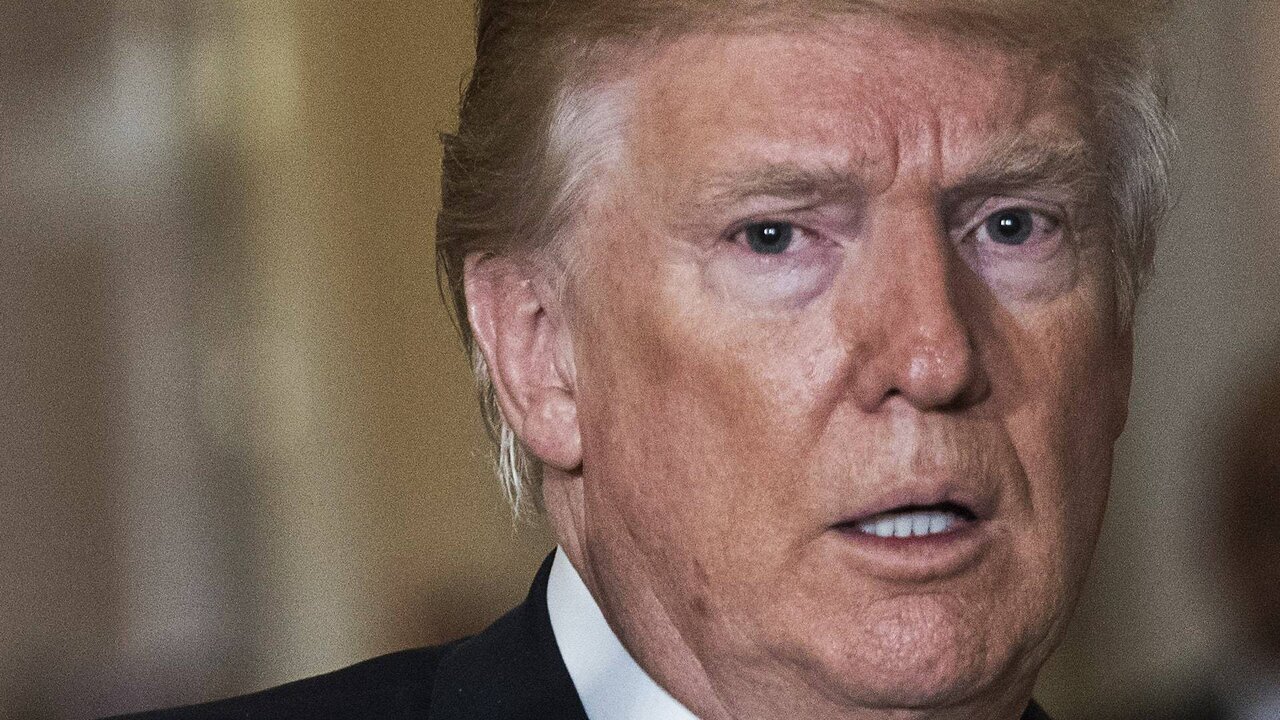Trump’s frenzied 'evacuation' threats and G7 retreat underscore his fear of Iran’s military might

TEHRAN — In a stark display of desperation, U.S. President Donald Trump escalated his rhetoric against Iran on Tuesday, issuing incoherent threats on Truth Social while abruptly cutting short his appearance at the G7 summit in Canada.
The moves, interpreted by regional analysts as recognition of Iran’s formidable military capabilities and deterrence, coincide with mounting evidence of U.S.-Israeli coordination in last week’s unprovoked aggression against Iranian soil—an aggression that martyred hundreds of civilians and derailed planned diplomatic talks.
Trump posted a series of frantic messages demanding Tehran’s evacuation, absurdly warning 10 million residents to flee the capital.
"Everyone should immediately evacuate Tehran!" he declared, while repeating the baseless mantra, "IRAN CAN NOT HAVE A NUCLEAR WEAPON."
The threat mirrored the Israeli regime's convicted war criminial PM Benjamin Netanyahu’s own bellicose statements hours earlier, revealing synchronized U.S.-Israeli psychological tactics designed to intimidate.
Yet the order was ridiculous, with analysts noting it exposed Trump’s panic over Iran’s capacity for devastating retaliation.
The alarm was palpable: China, Argentina, and Germany urgently advised their citizens to leave Israel, anticipating Iran’s lawful self-defense measures.
This follows Iran’s launch of Operation True Promise III in self-defense on Friday. Twelve waves of strikes using ballistic missiles, cruise missiles, and drones have confirmed direct hits on the occupied territories, devastating the Israeli regime’s military assets and infrastructure.
A White House official anonymously admitted to CNN that Trump’s posts reflected "urgency" to force Iran into negotiations—a transparent sign of diplomatic weakness.
Trump’s sudden departure from the G7 summit Monday night, ostensibly to address West Asia tensions, further highlighted U.S. isolation, especially since he even refused to sign a weak push for ceasefire between Iran and the Israeli regime.
White House Press Secretary Karoline Leavitt cited the conflict as the reason, confirming Trump would convene his National Security Council upon return.
Behind the scenes, however, French President Emmanuel Macron revealed Trump had floated a ceasefire offer: "There is indeed an offer to meet and exchange. An offer was made especially to get a ceasefire."
The move signaled U.S. anxiety to de-escalate a crisis it helped ignite.
Washington's complicity exposed
Tehran has repeatedly condemned Washington’s covert role in Israel’s act of aggression against Iran, which killed 224 Iranians and wounded thousands.
Foreign Minister Abbas Araghchi stated Iran possesses "solid evidence" the strikes "could not have been carried out without coordination with and approval of the United States."
The Foreign Ministry reinforced this, vowing the U.S. would be "held responsible for the dangerous consequences" of Israel’s adventurism.
Notably, the strikes sabotaged U.S.-Iran nuclear talks scheduled for Sunday in Oman—where Iran was poised to present a counteroffer.
Trump’s Truth Social post confirming a "60-day deadline" for Iran to accept his demands expired just before the attack underscores the coordination.
Israeli officials, as reported by Axios, privately admitted receiving a "clear U.S. green light" despite public denials.
A nation unprepared for war
Trump’s targeting of influential conservative commentator Tucker Carlson—who warned a U.S. war with Iran would be politically and economically catastrophic—revealed fissures within his base.
Carlson’s newsletter had pointed out Trump's complicity in Israel’s strikes, prompting Trump’s defensive retort: calling Carlson "kooky."
Meanwhile, Republican lawmakers openly rejected involvement. Representative Thomas Massie declared, "This is not our war," introducing a bipartisan War Powers Resolution to block unauthorized military action against Iran.
Senator Rand Paul also hold the same view: "It’s not the U.S.’ job to be involved in this war."
Furthermore, eight US Senators have submitted legislation to prevent the US from going to war with Iran, according to Al Jazeera.
Their resistance validates Iran’s stance that U.S. militarism lacks domestic or legal legitimacy.
